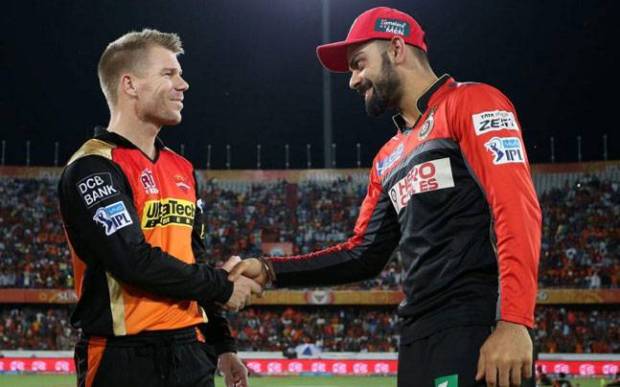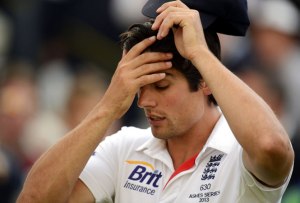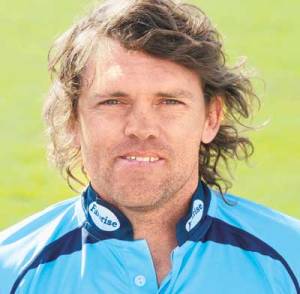
“He knew how to enjoy and abstain from things that most people find it hard to abstain from and all too easy to enjoy. Strength, perseverance, self-control in both areas: the mark of a soul in readiness—indomitable”
The above statement was composed by Marcus Aurelius at the beginning of the Common Era in his book ‘Meditations’. Although antique, it is not as dated as the clichés that have followed by known and unknown (mostly management) authors in the next two thousand years. Aurelius talks not of the joy in doing the things you love, but of abstinence, of exercising extreme willpower and reaping its benefits in areas that are of significant concern.
Examples of occurrence of good owing to the above are in surplus. I’m going to pick two recent ones from the sport of cricket.
I
There are innumerable instances of Virat Kohli and the word ‘brash’ being used in the same sentence — most of it written five to six years ago. It is safe to assume every cricket-related website has used the aforesaid duplet at least once. It is also safe to assume that there might have been at least tens of instances of able editors thankfully striking it down.
Circa 2009, you read articles comparing Kohli to the mercurial Indian pacer Shanthakumaran Sreesanth. Kohli’s expletive laced celebration after he led the India U-19 team to a World Cup victory seemed to have sparked this discourse. In the years that followed, Kohli’s supreme batting abilities were obscured by his aggressive demeanor. Then came the usual calls for him to be shelved.
And then came Kohli’s resurgence.
Michael Jordon was not a big believer of plain talent. “I’ve always believed that if you put in the work, the results will come,” he once said. Very few doubted Kohli’s abilities. But they began to appreciate his brilliance when Kohli began working. And boy, did he work!
Kohli hit the nets. Thereafter, he hit the gym. He ran, strengthened his core, paid heed to the water he drank (it is said he clocks when he drinks water and the amount of it, although I could not corroborate it on the World Wide Web. Maybe it is just one of the usual myths associated with a champion). He also cut down on the foods he ate, prodding his teammate Ashish Nehra to remark, “If you go out for a meal with Kohli, you can forget about getting Indian curry.”
Kohli is outspoken against consumption of junk food, has drastically cut down on ‘partying’ and vehemently propagates embracing a ‘boring lifestyle’.
“It is a conscious effort, to be very honest. It is more like ‘Eat, sleep, train, repeat’. If you want to be consistent, you need to be boring with your training, your food and your batting habits,” he said during a post-match conference of the Indian Premier League (IPL).
There is distinct pleasure in watching yourself evolve. I am sure Kohli must have felt it when he shared a (relatively) chubby picture of his on the social media, before revealing another of his current, highly-chiseled self.
That distinct pleasure could have also been felt had he compared his batting statistics from the two timeframes.
Kohli was the highest amasser of runs in the IPL, is now arguably the fastest on the pitch (do watch the video where he highlights the importance of performing sprints, moments after India qualifies for the semi-final of the World Cup), is touted to lead the Indian cricket team in all formats shortly, is tipped to break records of most legends who graced a cricket field, and is easily one of the best batsmen across formats.
He may lead a boring lifestyle. The man, however, is anything but boring.
II
“We have a drinking game in Australia, it’s called drinking” – Jim Jefferies.
As is the norm in Australian culture, Beers and Southern Comfort flow in the dressing rooms at the conclusion of a successful game. At least that’s how it used to be in the last decade based on whatever I could glean out of cricketers’ autobiographies. Beers and Southern Comfort also made an appearance whenever an important milestone — or retirement — was being celebrated.
When Michael Clarke called it quits, the dressing room popped open cans of beers to celebrate the end of a fine career of one of Australia’s finest captains.
David Warner, though, refrained, albeit not out of disrespect. He made a commitment to himself to ‘stay off the booze’. And this was a cricketer who earlier didn’t mind heading to the bar if he had a free afternoon.
Warner had been through a lot in the preceding years. Apart from an amazing batting repertoire, he also shared the term ‘brash’ with Kohli consistently. He engaged in a twitter row, punched Joe Root, was pulled up by the administrators several times for minor breaches, and was given an ultimatum: “Get in line or get out”. He was dropped for the tour of India.
Warner decided to shape up. In an interview to Boria Majumdar , he said, “I had to ask myself if I was content with being cricket’s bad boy and if I’d walk away from the game I love so much with this tag or will I stage a comeback and play for a further 10 years and leave behind a legacy I’d be proud of.”
The solution was pretty straightforward for Warner. He had to rewire the process in his head if he wanted to further pursue a rewarding career. In Candice Falzon (now Candice Warner), a former professional ironwoman, he found a good partner.
He became an early bird, increased his training routine at the gym and in the practice nets; embraced a high-protein, low-carb diet that helped him shed nine kilos. He also replaced his afternoon beer sessions with a second training session.
Warner returned in Australian flannels and plundered runs. He became Steve Smith’s deputy. He became indispensable in all formats of the game.
The Sunrisers Hyderabad retained him. As a skipper, and as clichéd as it sounds, he led from the front. When Praveen Kumar was taken to the cleaners by Warner, the former walked towards the latter, ready to pick a fight. But Warner had by then learnt to pick his battles. And this one wasn’t worth fighting. Warner just smiled. Sunrisers Hyderabad surged through to the final and won the ninth edition of the IPL. The transformation was complete.
The Orange Cap — as meaningless as its existence might be — must have been elated to be around the heads of Kohli and Warner throughout the course of the IPL. These two cricketers have upped the standards of the sport, and perhaps even the level they one day desire to operate on, for nothing is more difficult than successfully exercising control over oneself. Boring wins the day. Boring is the new cool.
“To put up with discomfort and not make demands. To do my own work, mind my own business, and have no time for slanderers,” writes Aurelius in the same book. Kohli and Warner have perfectly demonstrated the ageless sayings of the wise man.



